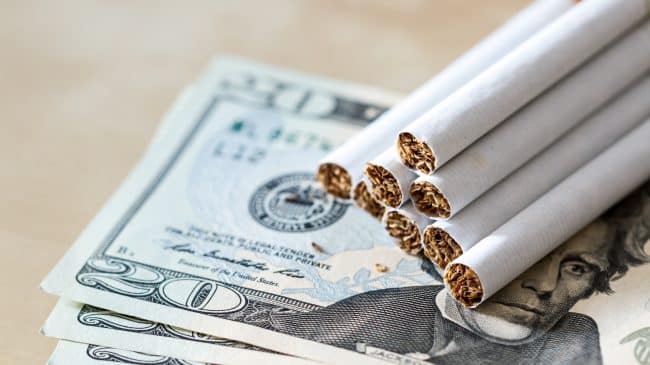The proposal to increase the District’s cigarette tax by $2 per pack may be one of the few tax hikes that could command more friends than enemies, but the D.C. Council should think twice before making the District one of the most expensive places in the country to buy a pack of cigarettes.
Cigarette taxes are a rare tool in a legislator’s arsenal. They can, in theory, raise revenue for the government and reduce smoking at the same time, which appeals to much of the public. But, as with every policy, there are no cost-free options. Everything, even tobacco taxes, comes with trade-offs and the certainty of unintended consequences.
The tax increase being considered would catapult D.C.’s cigarette tax from $2.94 to $4.94 per pack, putting the city ahead of even New York State’s infamously high $4.35-a-pack tax. While anti-smoking groups may relish such a prospect, there are reasons to be highly skeptical that this new tax will raise anything like the revenue hoped for or accelerate the already-declining teen and adult smoking rates.
First off, there is the inescapable reality of geography. The District shares a border with Virginia, which has the second-lowest cigarette tax in the country at 30 cents a pack. Raising D.C.’s cigarette tax would provide a strong incentive for smokers to buy cigarettes in Virginia and for smugglers to buy them there and sell them in the District.
Years of empirical research show high cigarette taxes generate black-market activity, particularly if the high-tax area borders a low-tax state. Virginia already has the third-highest rate of outbound cigarette smuggling of any state. If the D.C. tax increase passed, it wouldn’t be surprising for Virginia to climb higher on that list.
That would mean money pouring into the pockets of smugglers and a potentially huge loss of government revenue. When D.C. raised cigarette taxes in 2009, cigarette tax revenue plunged by $4.9 million in the six months following the introduction of the tax. We’ve seen this dynamic play out even more dramatically in New York, where 57 percent of cigarettes consumed in 2015 were smuggled, costing the state $1.63 billion in untaxed sales.
More smuggling and black-market criminal activity also mean higher probabilities for confrontations with police, particularly in minority neighborhoods that have higher smoking rates and are less affluent than majority-white neighborhoods, making them prime targets for smugglers. The tragic death of Eric Garner, who was killed by a police officer’s chokehold while he was selling loose cigarettes in New York City in 2014, is an extreme example of what can happen when tobacco taxes meet overcriminalization.
The tax increase could also hurt people who have ditched smoking for a healthier alternative —vaping — because the tax would raise the price of e-cigarettes, too. E-cigarettes are 95 percent safer than smoking, according to the Royal College of Physicians. Raising prices on e-cigarette products, which pose a fraction of the risks of smoking and are helping people quit, is bad tax policy and bad public health policy.
As an alternative to massive tax increases, the D.C. Council should consider a strategy of tobacco harm reduction, which can help smokers quit without risking a smuggling epidemic. Redirecting more revenue raised from current tobacco sales to effective smoking-cessation programs would be a welcome reform. Thankfully, the teen smoking rate is falling steadily and stands at the lowest level on record. Continuing to enforce age restrictions and giving parents who are smokers information and access to less dangerous nicotine alternatives can help drive that rate even lower.
Tobacco taxes are often presented as a policy with no costs or downsides. The evidence, however, tells a different story. Just because something is popular doesn’t make it wise, even when it comes to cigarettes.

